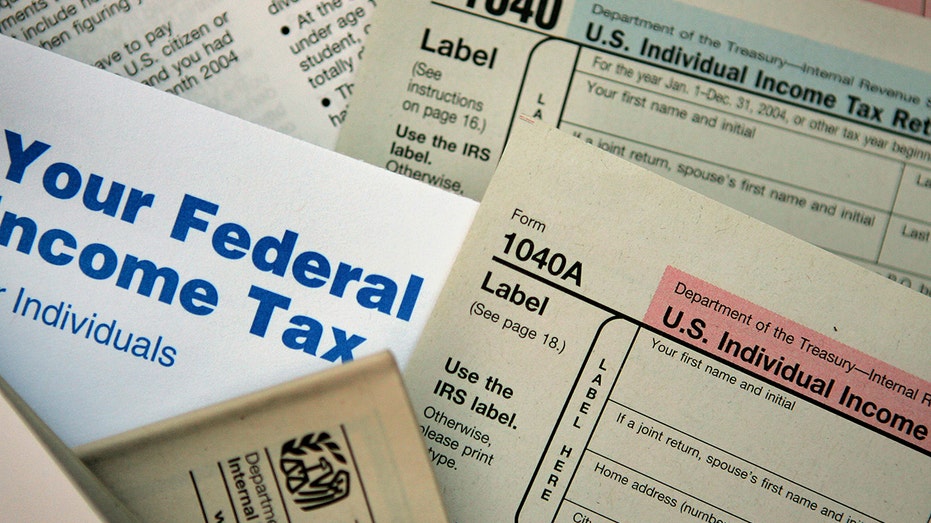'Work from home' provides no tax benefits, but 'creator economy' leading to home-run businesses booms: experts
The 'creator economy' of influencers, TikTokers and more grew 207% between 2018 and 2020
Working from home might provide certain conveniences, but don’t count a tax break among them.
Taxes are due April 18, and around 58% of the American workforce is still remote. Those with a work from home (WFH) situation will look to claim deductions on their new set-up, but some tax prep companies told FOX Business that remote work does not come with any added tax benefits.
IRS ON HIRING BLITZ AS TAX RETURN BACKLOG SWELLS
An H&R Block spokesperson explained that "taxpayers working from home as an employee will not be able to deduct any expenses related to their work. The Tax Cuts and Jobs Act of 2017 eliminated the deduction for unreimbursed employee expenses for tax years 2018-2025."
Taxes are due April 18, and around 58% of the American workforce is still remote. | iStock
Instead, taxpayers who are self-employed "may qualify for the home office deduction and any other business expenses that are ordinary and necessary to their business." Such deductions rely on setting aside an area "exclusively and regularly" for the business.
The one area that remote employees must pay attention to is any reimbursements received from their employers: Mark Steber, a senior vice president and chief tax information officer at Jackson Hewitt, explained that reimbursement can count as taxable income, depending on an employer’s benefits setup.
WILL RISING GAS PRICES IMPACT RETURN TO WORK?
"What I have seen over the last year, absent a tax break … is a great deal more discussion and negotiation with your employer to say I am working from home, I have incurred these costs and these new, work-related expenses, how about some reimbursement," Steber explained. "But those are really reimbursements for out-of-pocket expenses, and unless you have an accountable business expense plan, that’s taxable income."
"If you ask your boss for $5,000 for a desk or multiple monitors, and they give you $5,000, that’s taxable income," Steber added, calling it a "facts and circumstances" situation. "Now, there are rules for accountable plans … if you have an accountable plan where you submit receipts, and you’re reimbursed for those receipts and certainly not just given a wad of cash, you very well might be able to not declare that as taxable income."

The landscape of WFH, self-employed businesses is booming thanks to what tax prep firm Intuit calls the "creator economy." (Robin Utrecht/SOPA Images/LightRocket via Getty Images / Getty Images)
The landscape of WFH, self-employed businesses is booming thanks to what tax prep firm Intuit calls the "creator economy" – an industry that includes everyone from Instagram influencers to Twitch streamers and even OnlyFans talent.
A recent TurboTax survey found an increase of 207% in taxpayers claiming creator, streamer, influencer or related occupations from tax year 2018 to tax year 2020. Just over half of those individuals filed without a W-2 form, indicating that they rely on their creator occupation as the primary source of income.
HOW TO OFFSET COLLEGE COSTS WITH EDUCATION TAX CREDITS
"We’re just trying to educate those people because they’re making money and they’re self-employed," Lisa Greene-Lewis, an Intuit CPA and TurboTax blog editor, told FOX Business. "They don’t realize now they’re making money, and on the flip side, they’re so much they can deduct and such unique deductions at that, like their camera equipment, all of it."
Steber believes that the tax code will evolve to reflect the reality of the average American: If a bulk of workers remains remote, the tax code may eventually account for it.

Federal tax forms are distributed at the offices of the Internal Revenue Service Nov. 1, 2005, in Chicago. (Scott Olson/Getty Images / Getty Images)
"That’s how our tax code has gotten to be the complex and yet fair way it is," he said. "What the taxes have been reflective of is the complicated nature of our society: Buy a new home, get a new home buyer credit; buy electric vehicles, they created an alternative fuel vehicle credit; working from home as a business, a home office deduction."
GET FOX BUSINESS ON THE GO BY CLICKING HERE
"It’s certainly within the powers of our elected officials," he added, noting that is not in the current conversation.
























